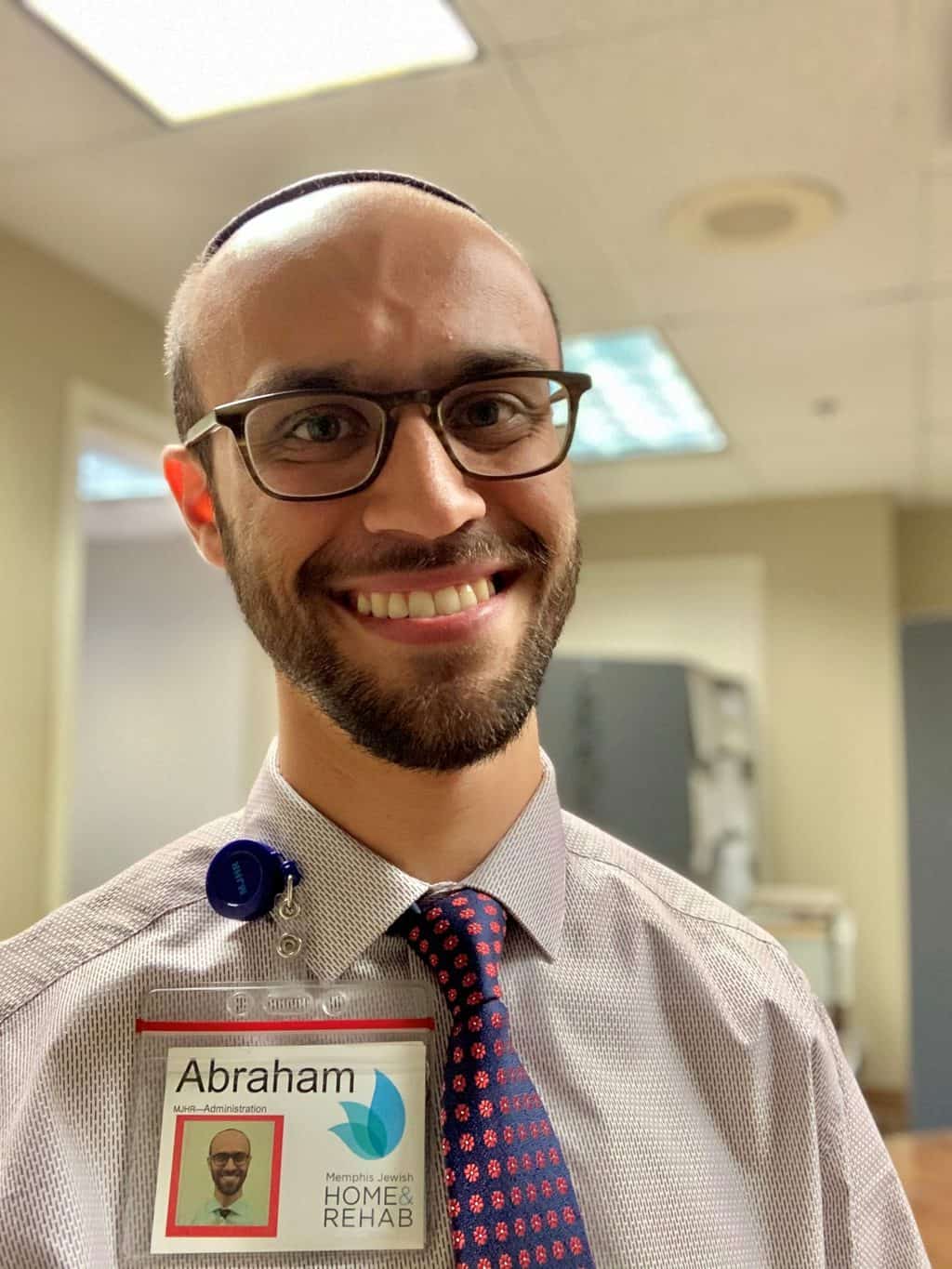On Thursday, April 28, 2022, at 6:30 P.M., Memphis Jewish Federation’s 60th annual Yom HaShoah Commemoration will feature Elisha Wiesel, son of Nobel Laureate, Holocaust survivor, and memoirist Elie Wiesel, “in conversation” with Rabbi Abe Schacter-Gampel of Memphis Jewish Home & Rehab (MJHR). Advance registration for in-person or virtual attendance is required.
Though Wiesel and Rabbi Schacter-Gampel have only recently personally connected, the two share a fascinating connection. Rabbi Abe is the grandson of Rabbi Herschel Schacter, the first U.S. Army Chaplain to participate in the liberation of the Buchenwald death camp, where Elisha’s then 16-year-old father, Elie, was among the survivors.
Rabbi Abe Schacter-Gampel, the first board-certified Chaplain and Director of Spiritual Care at MJHR and rabbi for the Hospice of Hope, fondly recalls childhood memories of his grandfather’s remarkable stories from his past. Sadly, they never had the opportunity to explore these memories together as Rabbi Abe’s intellectual curiosity blossomed in adulthood.
“My Zayde suffered from Alzheimer’s for the last ten years of his life. By the time I was beginning to ask bigger questions, we were no longer able to effectively communicate,” he said. “The family story of his liberation of Buchenwald became the connection and the memory for me when I wasn’t able to talk to him. He’s brought back alive through these memories and thanks to these opportunities, I’ve gotten the chance to relearn as an adult who my grandfather really was.”
Before enlisting in the U.S. Army in 1942, Rabbi Herschel Schacter was as a pulpit rabbi in Stamford, Connecticut. During the war, he served the 3rd Army’s VIII Corps and was the first US Army Chaplain to participate in the liberation of Buchenwald on April 11, 1945, an hour after Patton’s troops took control of the site. He stayed at Buchenwald for months leading religious services and tending to survivors, including 7-year-old Yisrael Meir Lau, who grew up to become the Ashkenazi Chief Rabbi of Israel. He assisted in the resettlement of displaced persons, like the teenaged Elie Wiesel, and was discharged with the rank of captain. After the war, he served as the rabbi of the Mosholu Jewish Center in the Bronx from 1947 to 1999. His story is told in the upcoming book The Rabbi of Buchenwald – The Life and Times of Herschel Schacter by Rafael Medoff.
Of the many books, papers, lectures, and interviews about the Holocaust Elie Wiesel shared with the world, none loom larger than his memoir Night, which has been translated into 30 languages and has sold 10 million copies in the United States. The harrowing book is based on his experiences at Auschwitz and Buchenwald. About the work, Wiesel once said, “I wanted to show the end, the finality of the event. Everything came to an end- man, history, literature, religion, God. There was nothing left. And yet we begin again with night.”
“The Jewish calendar is ingeniously set up to have touchstones throughout the year to remember important things,” Rabbi Abe said. “On Rosh Hashanah and Yom Kippur we remember the year ending and think about the year ahead. On Passover we sit around the Seder table and think about freedom then and freedom now. And it’s the same with Yom HaShoah. It touches upon something very important to Jewish history. We gather because we have to remember what happened and talk about it, because if we don’t, it ceases to exist in memory and present reality.”
For health and safety, in-person seating at the MJCC is highly limited and requires registration on a first come-first serve basis. In-person attendees are asked to provide proof of COVID vaccination when registering. Registered attendees with special needs may also register for complimentary valet parking. Visit jcpmemphis.org/yomhashoah to learn more.
